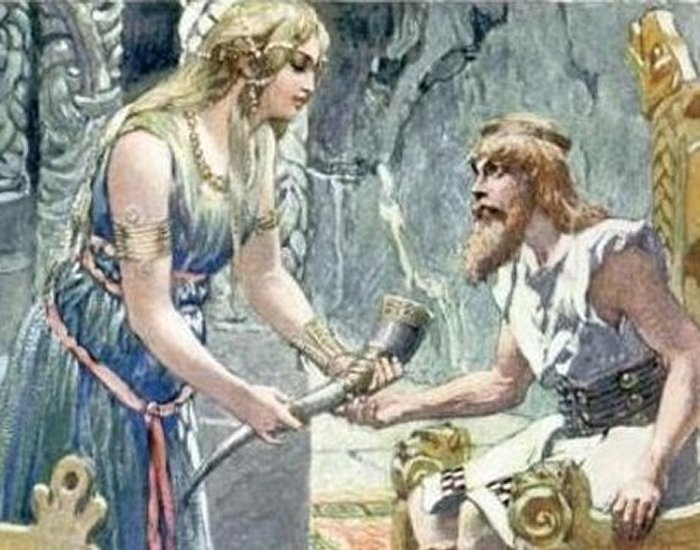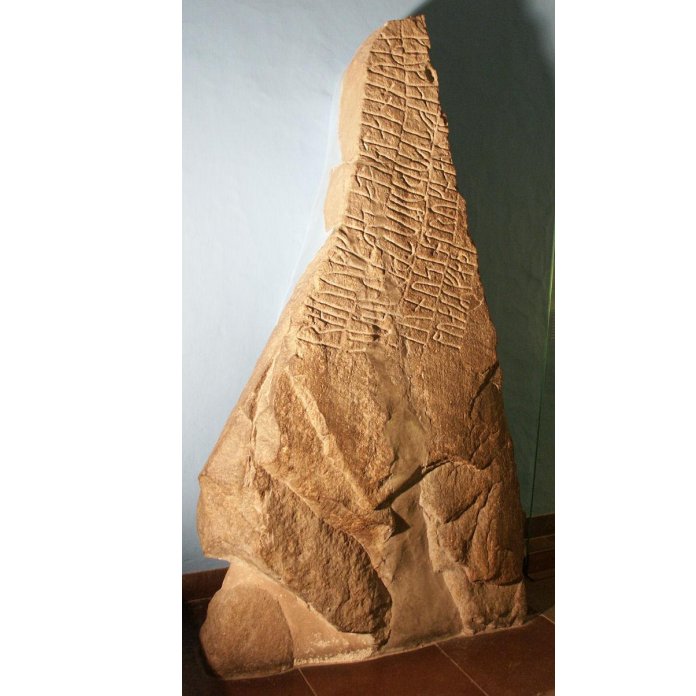How Did Vikings Worship Their Gods?
Ellen Lloyd - AncientPages.com - The Pagan Vikings worshipped several gods and goddesses. However, unlike other ancient civilizations, the Vikings had neither an organized priesthood nor a hierarchy of religious leaders. Temples or other religious buildings were also never used when the Pagan Vikings paid tribute to the Norse gods.
So, how did the ancient Vikings worship their gods?
Nature played an important religious role in the lives of Vikings and Norse people. credit: Adobe stock - Nejron Photo
During the Pagan Viking age, it was a common practice in express ones’ respect to the Norse gods according to local customs. This was, in most cases, done on farms. The farmer and his wife led many everyday rituals.
It was always important for the Vikings to be on good terms with the gods. To ensure this, they made “blót” sacrifices. The blot was an important social and religious event, and the Chief was the master of the ceremony. It was an exchange in which people sacrificed to the gods in order to get something back in return. For example, this might be the gods’ goodwill regarding weather, fertility, or luck in battle.
The Vikings gathered for a feast. Sacrifices were made, and the sacred mead flowed freely.
Odin captures Mead of Poetry by Emil Doepler (1900).
All drank in honor of the dead and held a memorial "for the good year and peace". Singing songs and reading poems honoring the gods and ancient heroes was also an important part of the ceremony.
One of the most comprehensive descriptions of a blot sacrifice in the North can be found in Hakon the Good’s Saga, which was written by the Icelander Snorri Sturluson in the 1200s. In his saga, Snorri writes that Sigurd Håkonsson was a very generous man and supplied the whole feast, which he was long remembered for.
Rune stone from Helnæs on Funen. Many rune stones were erected in memory of powerful men. Credit: National Museum of Denmark
It is believed that there were four fixed blot sacrifices a year at the following times: the winter solstice, the spring equinox, the summer solstice, and the autumn equinox. The Vikings also held additional blot sacrifices, for example, if a crisis arose that required help from the gods.
Farms were not the only places used to honor the Norse gods. The Vikings also used certain sacrificial sites because they believed that there was particularly strong contact with the gods at these locations. In Denmark, archaeologists have discovered places such as Tissø in West Zealand and Tyrseng at Viby in Jutland. These were named after Thor, the Norse God of war.
There are also places in Denmark that are named after the great Norse god Odin. However, the Vikings did not use Odin’s name indiscriminately. It was reserved for places of special significance. Onsholt in Aarhus is one such place. Onsholt is a shortening of Odin’s Holt, which means ”Odin’s Wood”
Updated on March 13, 2024
Written by - Ellen Lloyd – AncientPages.com
Copyright © AncientPages.com All rights reserved. This material may not be published, broadcast, rewritten or redistributed in whole or part without the express written permission of AncientPages.com
More From Ancient Pages
-
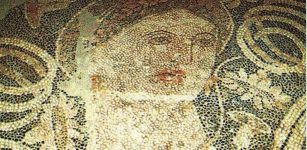 Wax Tablets Reveal Ancient Secrets of The Illyrians
Artifacts | Sep 5, 2015
Wax Tablets Reveal Ancient Secrets of The Illyrians
Artifacts | Sep 5, 2015 -
 Young Boy Finds Baffling Artifacts In New Mexico Predating The Anasazi, The ‘Ancient Ones’
Featured Stories | Aug 6, 2024
Young Boy Finds Baffling Artifacts In New Mexico Predating The Anasazi, The ‘Ancient Ones’
Featured Stories | Aug 6, 2024 -
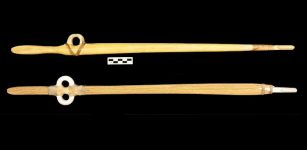 Are These Puzzling Rings Finger Loops From Ancient Weapon Systems?
Archaeology | May 24, 2023
Are These Puzzling Rings Finger Loops From Ancient Weapon Systems?
Archaeology | May 24, 2023 -
 Melisandre, The Red Woman: The History Behind Game Of Thrones’ Mysterious Mystic
Featured Stories | Jun 19, 2019
Melisandre, The Red Woman: The History Behind Game Of Thrones’ Mysterious Mystic
Featured Stories | Jun 19, 2019 -
 On This Day In History: Unua Libro ‘First Book’ Describing Esperanto Published – On July 26, 1887
News | Jul 26, 2016
On This Day In History: Unua Libro ‘First Book’ Describing Esperanto Published – On July 26, 1887
News | Jul 26, 2016 -
 Why Were These People Buried In A Remote, Unmarked Grave In New Hampshire In The Mid-1800s?
Archaeology | Nov 4, 2024
Why Were These People Buried In A Remote, Unmarked Grave In New Hampshire In The Mid-1800s?
Archaeology | Nov 4, 2024 -
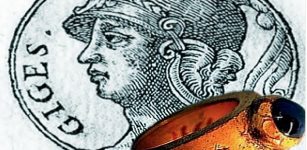 Magical Ring Of Gyges And Its Power To Be Invisible At Will
Featured Stories | Feb 16, 2023
Magical Ring Of Gyges And Its Power To Be Invisible At Will
Featured Stories | Feb 16, 2023 -
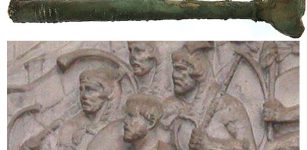 Vindolanda Treasures: Rare Roman Cornu Mouthpiece – Instrument of War – Uncovered
Archaeology | Sep 24, 2022
Vindolanda Treasures: Rare Roman Cornu Mouthpiece – Instrument of War – Uncovered
Archaeology | Sep 24, 2022 -
 The Sistine Chapel Cypher – Secret Messages In The Art Of Michelangelo
Ancient Mysteries | Mar 3, 2018
The Sistine Chapel Cypher – Secret Messages In The Art Of Michelangelo
Ancient Mysteries | Mar 3, 2018 -
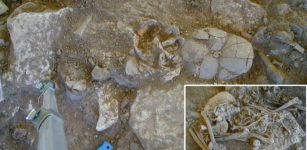 DNA Analyses Suggest The Plague Contributed To Stone Age Farmers’ Decline
Archaeology | Jul 10, 2024
DNA Analyses Suggest The Plague Contributed To Stone Age Farmers’ Decline
Archaeology | Jul 10, 2024 -
 Stunning Images Of Shackleton’s Lost Ship Endurance Discovered Off The Coast Of Antarctica
Archaeology | Mar 9, 2022
Stunning Images Of Shackleton’s Lost Ship Endurance Discovered Off The Coast Of Antarctica
Archaeology | Mar 9, 2022 -
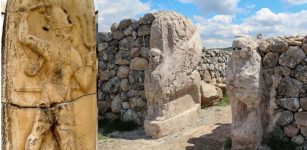 Drought Accelerated Hittite Empire Collapse – New Study Suggests
Archaeology | Feb 12, 2023
Drought Accelerated Hittite Empire Collapse – New Study Suggests
Archaeology | Feb 12, 2023 -
 On This Day In History: Edict Of Pistres ‘A New Law’ Against Viking Raids Issued – On July 25, 864
News | Jul 25, 2016
On This Day In History: Edict Of Pistres ‘A New Law’ Against Viking Raids Issued – On July 25, 864
News | Jul 25, 2016 -
 The Iron Man In The Kottenforst And Other Puzzling Ancient Artifacts Of Unknown Origin And Purpose
Ancient Mysteries | Mar 10, 2014
The Iron Man In The Kottenforst And Other Puzzling Ancient Artifacts Of Unknown Origin And Purpose
Ancient Mysteries | Mar 10, 2014 -
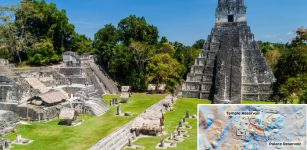 Ancient Maya Reservoirs Can Solve Today’s Water Crises – Scientists Say
Archaeology | Oct 10, 2023
Ancient Maya Reservoirs Can Solve Today’s Water Crises – Scientists Say
Archaeology | Oct 10, 2023 -
 Discovered: Mysterious 2,400-Year-Old Ancient Egyptian Shrine Belonging To 30th Dynasty Pharaoh Nectanebo I
Archaeology | Oct 6, 2015
Discovered: Mysterious 2,400-Year-Old Ancient Egyptian Shrine Belonging To 30th Dynasty Pharaoh Nectanebo I
Archaeology | Oct 6, 2015 -
 Proof Of Superior Ancient Technology – Found In All Four Corners Of The World
Ancient Mysteries | Mar 19, 2014
Proof Of Superior Ancient Technology – Found In All Four Corners Of The World
Ancient Mysteries | Mar 19, 2014 -
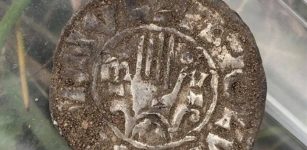 Hoards Of Viking Coins Discovered On The Island Of Saaremaa
Archaeology | Oct 7, 2019
Hoards Of Viking Coins Discovered On The Island Of Saaremaa
Archaeology | Oct 7, 2019 -
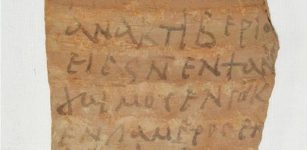 Rare Discovery Of More Than 18,000 Inscribed Pot Sherds Document Life In Ancient Egypt
Archaeology | Jan 31, 2022
Rare Discovery Of More Than 18,000 Inscribed Pot Sherds Document Life In Ancient Egypt
Archaeology | Jan 31, 2022 -
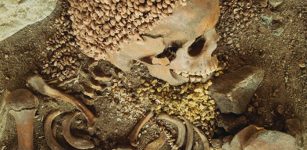 Broken Pebbles In Arene Candide Cave Shed New Light On Ancient Burial Practices
Archaeology | Mar 7, 2017
Broken Pebbles In Arene Candide Cave Shed New Light On Ancient Burial Practices
Archaeology | Mar 7, 2017


